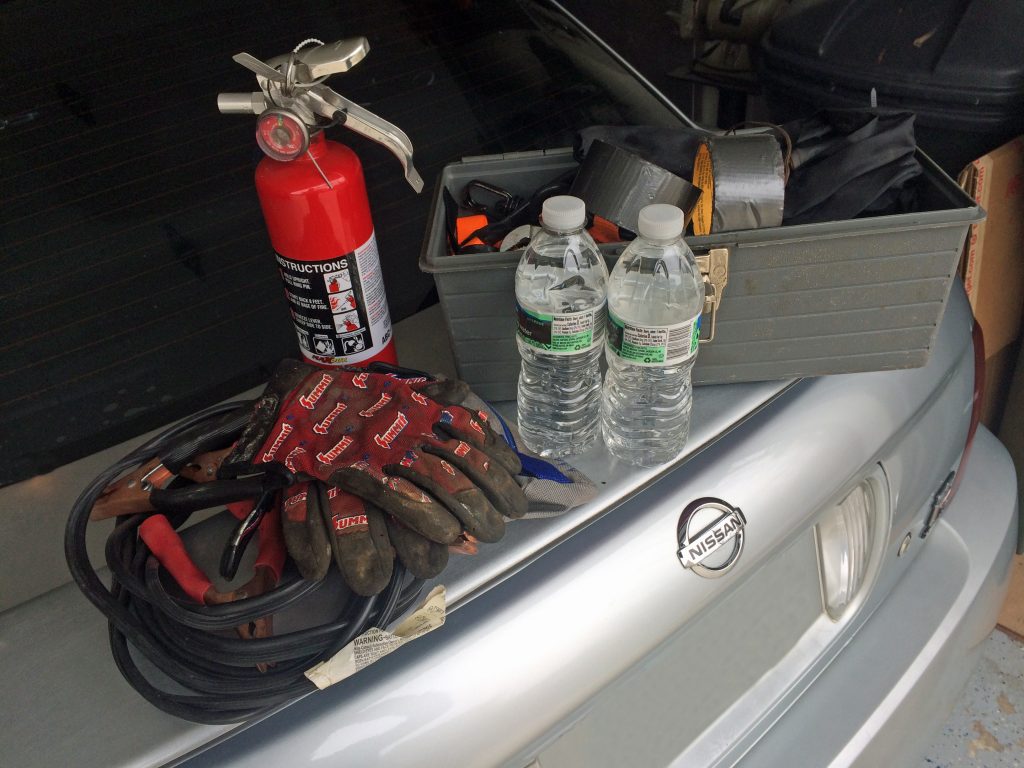
No doubt about it, cars and trucks are getting easier to own. Gone are the days of fiddling with a choke or regularly topping-off with oil. And with the rise of electric vehicles, car ownership may become even more maintenance-free.
Yet there are still a few bits of vital gear that you need to always have on-hand to be prepared for what your vehicle throws at you. While there’s plenty of room to expand this list, we’ve narrowed it down to 10 of the most essential things you need to always carry in your vehicle.
Note: We didn’t include a mobile phone, because we assume you’ll likely have your smartphone already with you. But if you’re interested in other forms of mobile communications, read this: Overlanding Essentials: Cell Phones, Mobile Radios & Off-Road Communications
***
10 Things You Should Always Keep in Your Car, Truck, or SUV
1. Fire Extinguisher
OK, let’s start out with an easy one. Equally handy for roadside emergencies or barbeque mishaps, a fire extinguisher is cheap insurance against potentially losing a vehicle…or much, much worse. They’re relatively compact and easily stowed under a seat or in the trunk—just make sure you can get to it quickly when you need it.
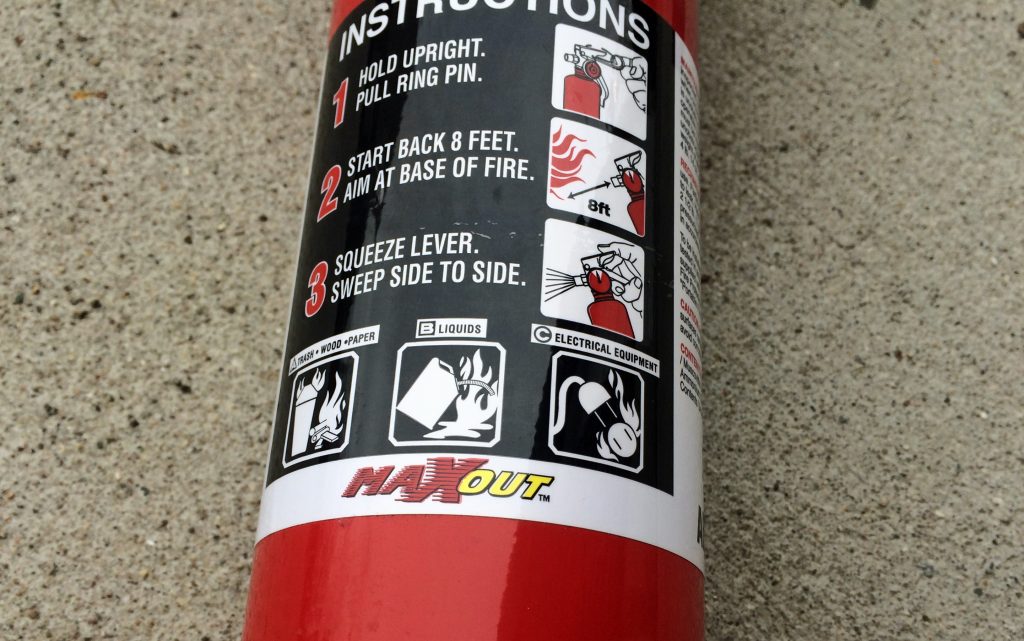
2. First-Aid Kit
It provides plenty of peace-of-mind to have a first-aid kit handy wherever you travel, be it a road trip or a kid’s soccer game. Basic kits should include some bandages, gauze, disinfectant, scissors, and gloves. You may want to supplement yours with other helpful things like tweezers, aspirin, string, burn cream, and Q-tips.
3. Jumper Cables
Another no-brainer here. Jumper cables can quickly turn a bad day back into a good one. And they’re a great way to make friends in a mall or grocery store parking lot too. Just make sure to familiarize yourself with how to properly jump a car first.
4. Spare Fuses
Just like jumper cables above, a spare fuse can save the day. They’re cheap and will last forever in storage, so pick up an assortment, toss them in your glove box, and they’ll be there if (or when) ya need ’em.
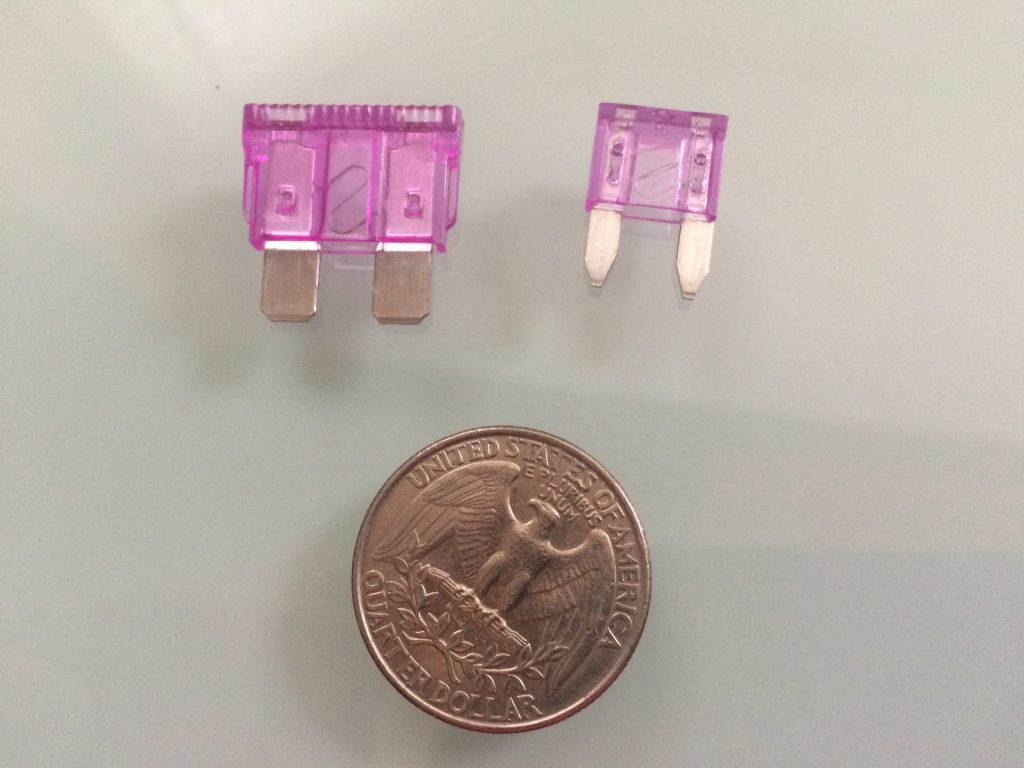
5. Flashlight
Flashlights are helpful for a lot of things, whether you’re peering into an engine bay or scouring a parking lot for a lost set of keys. And yeah, we know you probably have a light on your phone. But in an emergency, you should save all available phone battery power for communicating.
6. Basic Tool Kit
OK, we’re totally cheating here, because even though a tool kit is a single line item on this list, it actually includes several tools. But given that “basic” can mean different things to different people, it’s probably best to assemble one for yourself based on your wrenching skills. Here are some suggestions:
- Screwdrivers
- Pliers
- Wrenches
- Sockets
- Knife/Cutting Tool
- Hammer
- Electrical Test Light
- Zip Ties/Duct Tape
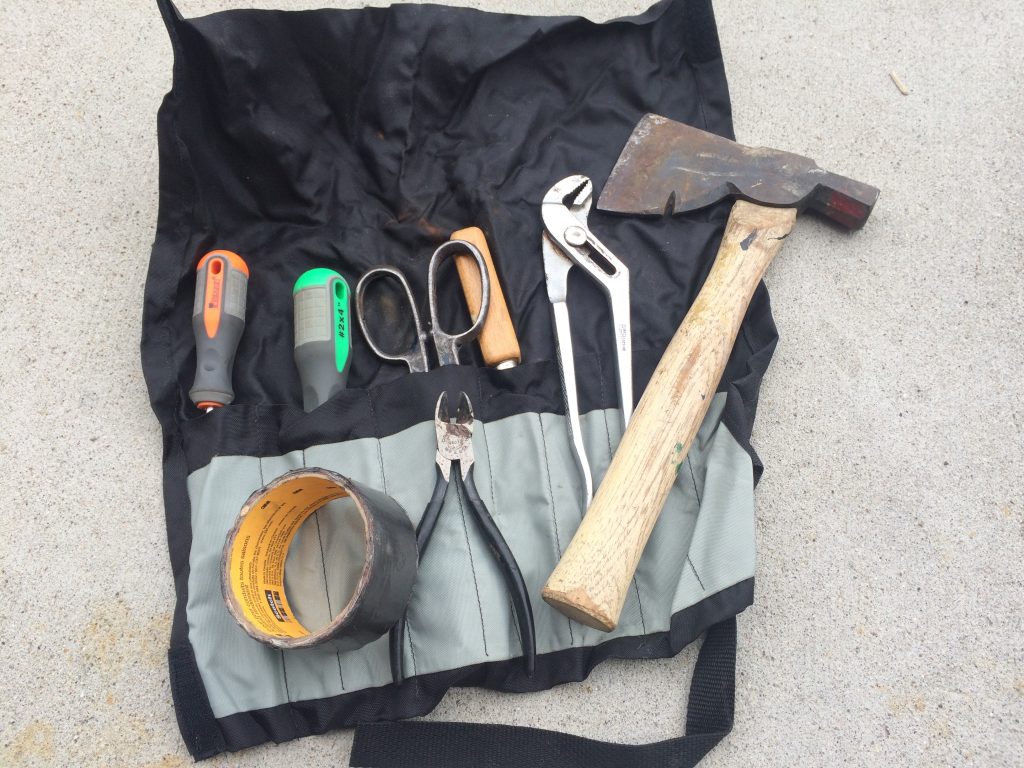
7. Spare Tire Kit
Yeah sure, your vehicle probably came with one from the factory, but have you ever inspected it? Do you know how it works? Does it include a (properly inflated!) spare tire and scissor jack, or one of those portable air compressor and patch kits? Don’t wait until you’re on the side of the interstate to teach yourself how to fix a flat, bust out your owner’s manual and read up now.
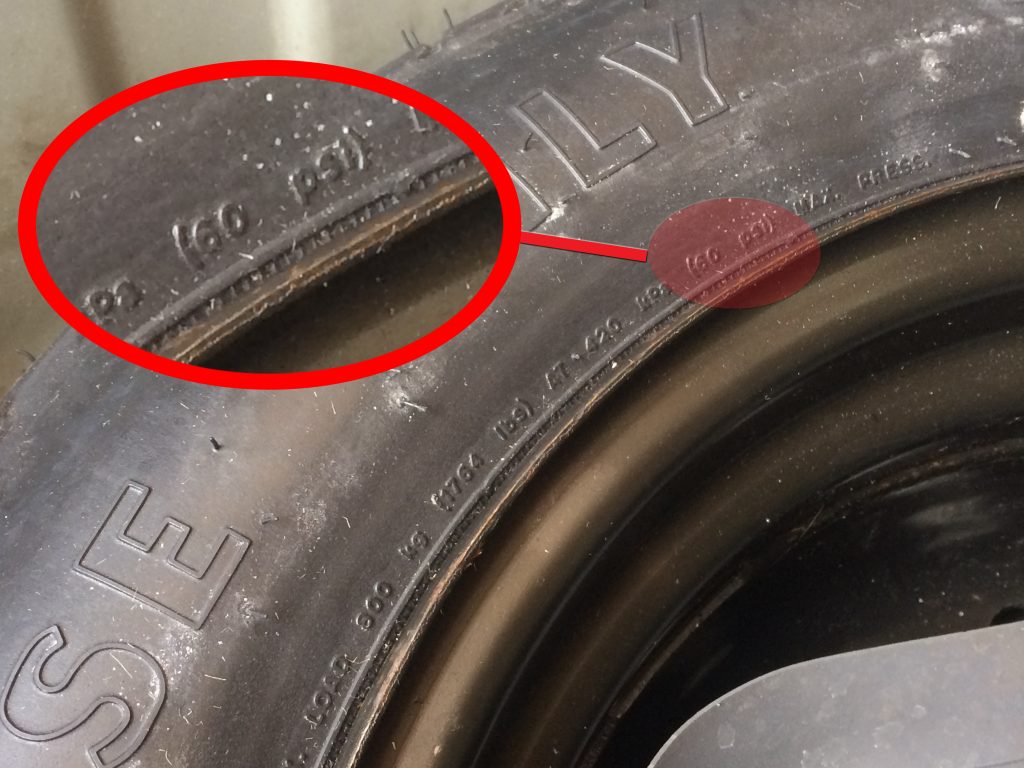
8. Gloves
From pushing a car to pulling trees and brush away, a durable, comfy pair of gloves can be quite the luxury to prevent both blisters and frostbite. And leather ones can even be used for makeshift gasket material in a pinch.
9. Pens, Pencils, Markers & Paper
Have you ever really, really needed writing material and couldn’t find it? Then you’ll understand why these are on the list. Hand-drawn maps, written phone numbers, even a dashboard note on a temporarily abandoned vehicle—there are dozens of reasons why you need to always carry good writing tools.
10. Bottled Water
A few extra bottles of water provide essential hydration and can be literal lifesavers in an emergency. Plus, they’re handy for cleaning injuries, topping-off coolant, or a quick hand wash after a roadside repair. (Just make sure to replenish the bottles as you use them.)
***
So, what’d we miss? Admittedly, getting this list down to just 10 of the essentials was tough, but did we overlook something critical? Or do you have any tips on what to bring and/or how to store it? Let us know in the comments below!
Or, if you want a far more comprehensive list of equipment for something like a camping or road trip, check this out: Overlanding Essentials: Camping & Off-Roading Tool Kit Checklist

Comments